5 men who are challenging perceptions around masculinity in 2022 and beyond
This MC Future Shapers 2022, we want to shine a light on the men making strides for positive change and redefining masculinity…
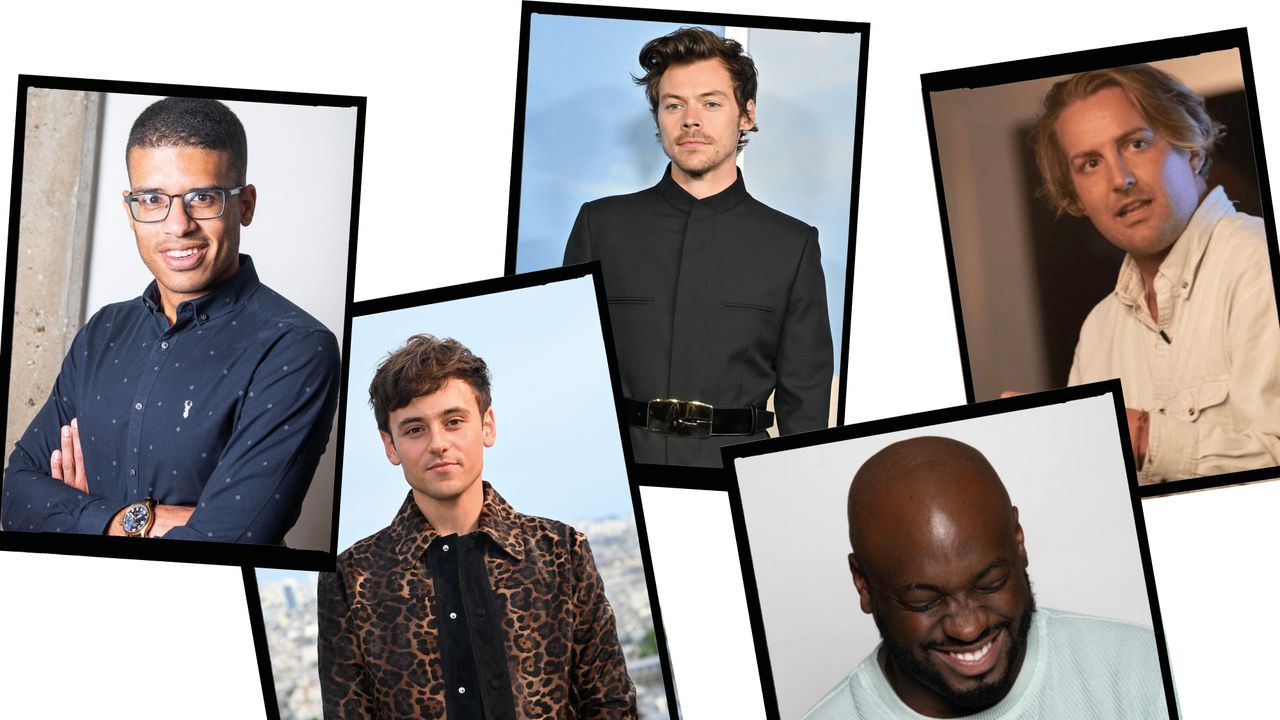
Masculinity is being redefined, but there’s still a long way to go. As we attempt to move away from outdated - and often harmful - gender stereotypes, these are five men paving the way for positive change, challenging perceptions around what it means to be a man in the modern world.
‘Man up’ - two words that all too easily roll off the tongue, but represent something far more insidious. Historically, masculinity has been associated with certain behavioural traits; strength, bravery and dominance, leaving little room for vulnerability. But endorsing these stereotypes in a negative way can have a devastating impact. Research from the charity Movember found that nearly a third of men say they feel pressure to be manly or masculine, while 38% of men do not talk to others about their feelings and almost three in 10 have never shown emotion or cried in front of others. Couple that with statistics that male suicide rates are continuing to rise according to the latest stats from the Samaritans, and it’s clear we need to see a change.
“The common narrative for men - and boys for that matter- is to be unemotional, stoic, hard, and physically strong, with terms like ‘boys don’t cry’, ‘man up’ and ‘take it like a man’ being drilled into us from a young age,” Global TEDx speaker on mental health, Chris Wharton, tells us. “All of these traditional expectations of masculinity have a common theme - keep your emotions to yourself and deal with them alone. And this manifests in some really toxic behaviour and potentially devastating consequences. We need only look at male suicide statistics and violent crime rates to see that this traditional definition of masculinity needs addressing urgently.”
We often see masculinity coupled with the term ‘toxic’, with studies such as this report from Science Direct finding that men who subscribe to inequitable gender norms are more likely to engage in violent behaviour. But there’s also a conversation to be had about healthy expressions of masculinity, as well as an acceptance of men who adopt the traits society deems ‘feminine’, like nurturance, empathy and tenderness. “We can use old notions of masculinity and use them for something positive,” explains Chris Hemmings, founder of M-Path, a service working with schools, businesses and other organisations to educate men on healthy masculinity. “Bravery, toughness and strength are not inherently negative. We can use them positively and change what they mean for men.”
Chris, who is the founder of Palm Rock Retreats, adds that having positive male role models is crucial to make this change, telling us, “There’s an old saying, ‘it’s very hard to become what you don’t see’. It will be impossible to truly redefine what it means to be masculine without people of influence setting an example.” 2022 has shown us such examples of men who are leading the way when it comes to redefining masculinity.

As we mark MC Future Shapers and celebrate agents of change across all industries, we also want to shine a light on the brilliant men who are making strides towards progress and changing the perceptions around masculinity.
This week, we are proud to profile five brilliant men who are at the forefront of this change, from inspiring celebrities to those working tirelessly behind the scenes.
Marie Claire Newsletter
Celebrity news, beauty, fashion advice, and fascinating features, delivered straight to your inbox!
Five men redefining what masculinity means in 2022
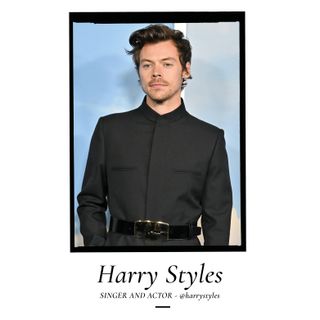
Singer and actor - @harrystyles
Harry Styles’s gender-fluid fashion has seen him act as an inspiration for many; it’s refreshing to see someone with such huge influence breaking boundaries in the fashion sphere. We’ve seen touches of femininity in Harry’s style since he emerged on the scene post-The X Factor in 2011. Since then, Harry’s style has evolved, with one of his most iconic looks - a Gucci jacket and dress, photographed by Tyler Mitchell in December 2020 for the front cover of Vogue. Through his flamboyant style, Harry is rewriting the rules of masculine dressing.
But Harry’s attitude towards masculinity goes much deeper than his sartorial choices. The singer and actor has spoken openly about embracing femininity and allowing himself to be vulnerable in the past. "I didn't grow up in a man's man world,” he told Timothée Chalamet during an interview with I-D magazine. “I grew up with my mum and my sister. But I definitely think in the last two years, I've become a lot more content with who I am. I think there's so much masculinity in being vulnerable and allowing yourself to be feminine, and I'm very comfortable with that.”
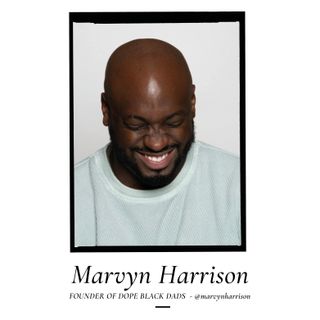
Founder of Dope Black Dads - @marvynharrison
Marvyn Harrison started Dope Black Dads - at first a small WhatsApp community, then a larger online community and now a hugely-successful podcast with community outreach initiatives across the world - after he struggled to connect with his own daughter and wanted to create a space where men could be vulnerable with one another about fatherhood.
“One of the biggest gaps is that the experience of having a child as a family often centres the mother, which is obviously an important part of the work that’s done, but what it doesn’t do is include fathers in a healthy way,” he told us. “Sometimes men are excluded from the process and they don’t have a very clear path to being connected. Gender stereotypes mean that even if a man wanted to be intentional about his connection to his children, he would very quickly find that society hasn’t created space for that to be possible.”
Part of Marvyn’s focus for the future is redefining what it means to be a father in today’s world. He explains, “In terms of creating a more accepting space for dads, there are things that men can do, things that women can do, and things that we can do together. There are new laws, policies, legislations and directives that could be created to encourage men to live a family-led lifestyle [such as new laws around extended paternity leave]. For women, it’s about creating more space for men to parent in their own vision. A father isn’t a male mother, so it’s not about men doing the things that mothers do, it’s about men stepping into their own version of caring for their children.”
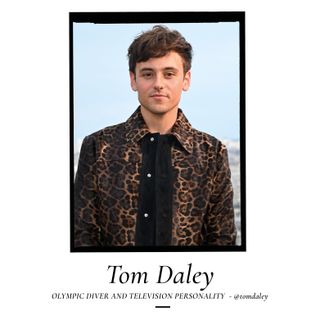
Olympic diver and television personality - @tomdaley
Tom Daley was recently named Rimmel London's first-ever male global ambassador; a move which he told PEOPLE, will "challenge what society says men can and can't do”. He said, "Growing up, there was never really any talk or anything about men being able to wear makeup. So I think it's really amazing to see how [this Rimmel London partnership is] pushing the gender stereotypes and the gender norms."
Olympic gold medalist Tom captured the hearts of the nation when he was spotted knitting in the stands in between competing at the Tokyo Olympics in 2020. He later announced his debut book Made With Love, a beginner’s guide to knitting and crochet, which aims to inspire a new generation of crafters - whatever their gender or sexual orientation.
Tom has spoken out before about how masculinity is evolving, telling L'Officiel, “The human race evolves with society, and today we are able to accept much more than we once did. I find it interesting to see how masculinity has changed in the last 10 years and I hope that we continue to take different paths because today we can feel comfortable with ourselves without worrying about what other people think.”

Founder of M-Path - @mpathmen
Public speaker and founder of M-Path, Chris Hemmings, is on a mission to educate the masses about healthy masculinity at a grassroots level. Chris visits schools, universities, businesses and other organisations to share his message through talks, seminars and workshops.
“I talk about how much this constant drive for men to appear dominant is damaging and the reason I’ve called it M-Path is the need to grow empathy in men,” he explains to us. “At three or four years old boys and girls have similar levels of empathy, but by the time we get to 13 or 14 there’s a tangible empathy gap and there’s no research to show it’s purely biological. So, if it’s sociological to some degree then we can do something about it - we know that empathy can be taught.”
As part of his services, Chris offers empathy workshops, men’s mental health workshops, peer-on-peer workshops, as well as seminars on masculinity and bystander intervention. “The idea is that empathy is at the core of all of them and if we can increase the understanding that not only is your experience of the world not the default, but as men, we are trained from an early age not to experience empathy.
“I set a challenge to young men, saying if you want to be strong, I don’t care how much you can bench press. Who’s going to be the first one to speak up in your group on racism, misogyny or homophobia? If you want to be brave, we don’t need you to run into burning buildings and save ‘damsels in distress’. Who’s going to be the brave one and say they need help? If you want to be tough, toughness is who’s going to put their arm around their mate and say, ‘I think that you might need help’. That’s the real strength, bravery and toughness.”
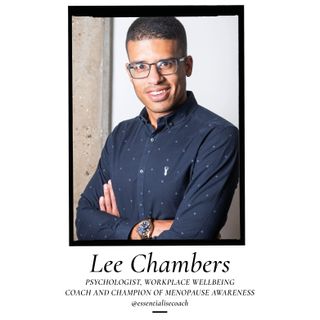
Psychologist, workplace wellbeing coach and champion of menopause awareness - @essentialisecoach
Women’s health is largely still shrouded in taboo. While we’ve made strides in some areas - with positive steps towards menstrual equality and legislation passed in Europe for women with severe period pains to be entitled to paid leave - women’s health, and in particular menopause, is still a space with very few male champions. But one man who’s attempting to demystify this area and bring it to the forefront of men’s minds is Lee Chambers, a psychologist and founder of Essentialise Workplace Wellbeing, who’s turned his attention to spreading awareness about women’s experiences of menopause.
“When I launched my workplace wellbeing business, I started to see and hear how gender health inequalities left women without support in the workplace,” Lee told us. “With menopause directly impacting 51% of the planet and indirectly impacting everyone, I couldn't comprehend why there was so little consideration. Add to the harrowing stories I've heard of symptoms, behaviour and bullying, I felt compelled to speak out and start challenging other men to become curious, educate themselves and be part of normalising the conversation.”
Lee goes on to explain why it’s important for men to be strong allies to women regarding health issues, telling us, “With gender initiatives being more than three times more impactful when men are involved, we can use our privilege to be part of a brighter, healthier future for the women in our lives. And, by getting curious, we are likely to become more emotionally aware and kind to ourselves - which is something many men need, too.”

Lauren is the former Deputy Digital Editor at woman&home and became a journalist mainly because she enjoys being nosy. With a background in features journalism, Lauren has bylines in publications such as Marie Claire UK, Red Magazine, House of Coco, women&home, GoodTo, Woman's Own and Woman magazine.
She started writing for national papers and magazines at Medavia news agency, before landing a job in London working as a lifestyle assistant and covers everything from fashion and celebrity style to beauty and careers.
-
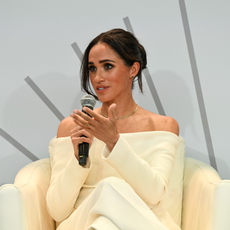 Meghan Markle opens up about 'huge medical scare' after giving birth
Meghan Markle opens up about 'huge medical scare' after giving birthBy Iris Goldsztajn
-
 You'll never guess which White Lotus characters almost had sex in the finale
You'll never guess which White Lotus characters almost had sex in the finaleWe can't believe this
By Iris Goldsztajn
-
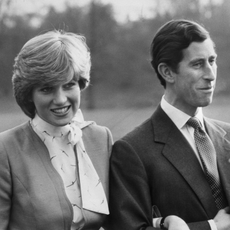 What King Charles 'deeply regrets' from marriage to Princess Diana
What King Charles 'deeply regrets' from marriage to Princess DianaIt was a difficult relationship
By Iris Goldsztajn
-
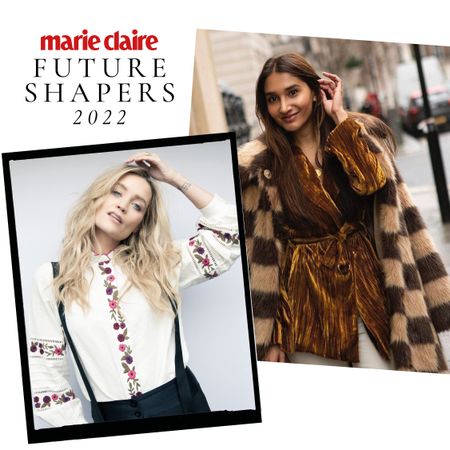 6 tips on navigating failure from our Futures Shapers judges
6 tips on navigating failure from our Futures Shapers judgesOur powerhouse Future Shapers 2022 judging panel talk career resilience and bouncing back from failure...
By Lauren Hughes
-
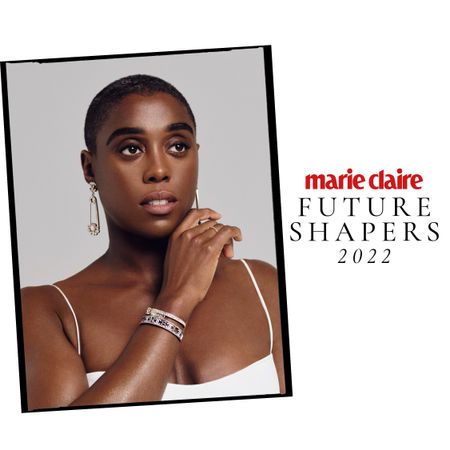 Women have been the true agents of change in 2022
Women have been the true agents of change in 2022This week marks MC Future Shapers 2022, recognising trailblazing women across all industries, and this year we are shining a spotlight on true agents of change.
By Jenny Proudfoot
-
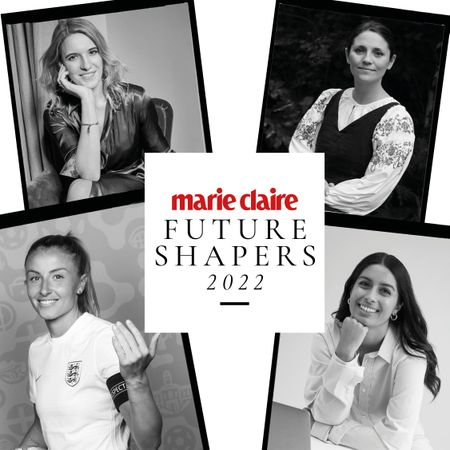 Meet the 11 incredible women we've named as our 2022 MC Future Shapers
Meet the 11 incredible women we've named as our 2022 MC Future ShapersBy Lauren Hughes
-
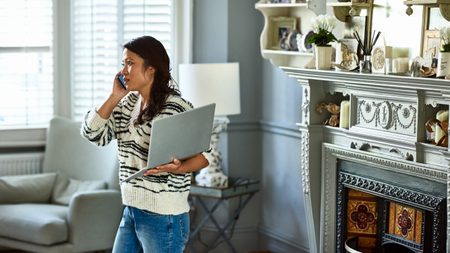 How to grow your personal brand, fast
How to grow your personal brand, fastWith the biggest influencers in beauty on her books, Chloé Watts, CEO and founder of chloédigital, is sharing all her secrets on how to build a brand as an effective influencer. Time to listen up...
By Maria Coole
-
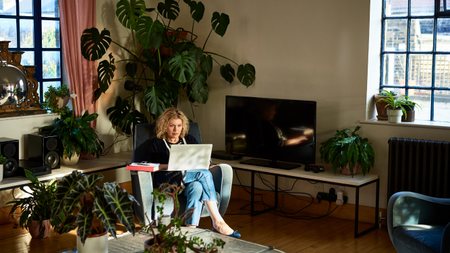 9 valuable career tips to channel from women at the top of their game
9 valuable career tips to channel from women at the top of their gameYour new career commandments to live by.
By Catriona Harvey-Jenner
-
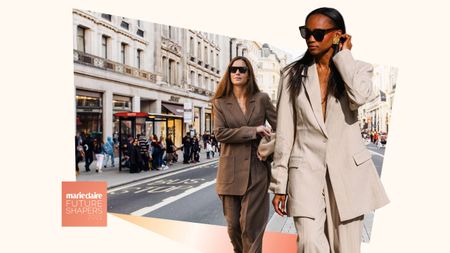 Successful women on how to network like a pro
Successful women on how to network like a proThe experts explain how to find the people who will help lift you up...
By Catriona Harvey-Jenner
-
 This imposter syndrome test can tell if you're holding yourself back at work
This imposter syndrome test can tell if you're holding yourself back at work77% of the UK suffers from imposter syndrome. This test will help you to work out whether you do, too...
By Maria Coole
-
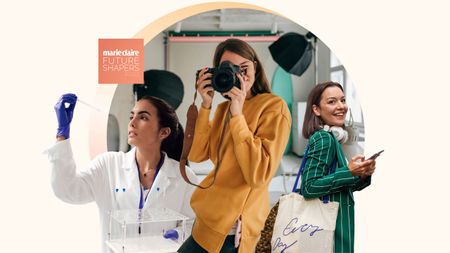 Planning a career change at 30? Don't do anything until you read this
Planning a career change at 30? Don't do anything until you read thisChanging career at 30: Four tiny things that make a big difference.
By Catriona Harvey-Jenner